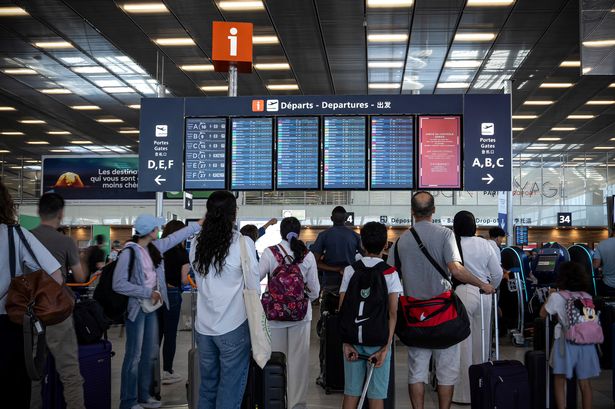EasyJet and Ryanair have been forced to cancel hundreds of flights due to strikes by French Air Traffic Controllers, disrupting travel plans for approximately 300,000 passengers. The strikes, which took place on July 3 and 4, led to an estimated 1,500 flights being affected, with significant cancellations at major French airports including Paris Orly and Paris Charles de Gaulle.
Ryanair’s CEO, Michael O’Leary, confirmed that the airline had to cancel over 400 flights, impacting more than 70,000 passengers. Meanwhile, easyJet reported the cancellation of 274 flights over the two-day period. The disruption comes as the French Civil Aviation Authority (DGAC) called for a reduction in airport capacity across the country, leaving airlines with no choice but to cancel flights.
Union Demands and Strike Impact
The industrial action was spearheaded by the UNSA-ICNA union, the second-largest union for air traffic controllers in France, which is demanding increased staffing levels and a pay rise. The strike coincided with the start of the school summer holidays in France, exacerbating the impact on travelers.
The USAC-CGT, the third-largest air traffic control union, also issued a strike notice for July 3, further compounding the disruption. The unions argue that current staffing levels are insufficient to manage the increasing air traffic, posing risks to safety and efficiency.
Passenger Rights and Compensation
Passengers affected by the strikes may face challenges in securing refunds. According to industry experts, airlines can claim ‘extraordinary circumstances’ for such disruptions, which may exempt them from providing full refunds. However, passengers might still be eligible for compensation if they were informed of the strikes less than 14 days before their flight.
“As long as the airline strikes were announced after you booked your trip and your travel insurance, you may be able to claim through your insurer,” explained Kara Gammell from MoneySuperMarket.
Travel insurance could cover disruptions or losses incurred due to delayed or canceled trips, including alternative accommodation and other expenses. However, coverage varies between providers, making it crucial for travelers to review their insurance policies carefully.
Historical Context and Future Implications
This is not the first time French air traffic control strikes have caused widespread disruption. Historically, such strikes have been a recurring issue, often leading to significant economic impacts on the aviation industry and related sectors. The ongoing demands for better working conditions and pay increases highlight long-standing tensions within the industry.
The current situation underscores the need for a sustainable resolution to labor disputes in the aviation sector. As air travel continues to rebound post-pandemic, ensuring stability and minimizing disruptions will be critical for airlines and passengers alike.
Looking forward, airlines and unions may need to engage in more constructive dialogue to prevent future disruptions. The French government might also play a role in facilitating negotiations to address the root causes of these strikes.
If you have been affected by the travel disruption, please contact us at [email protected] to share your experiences.
